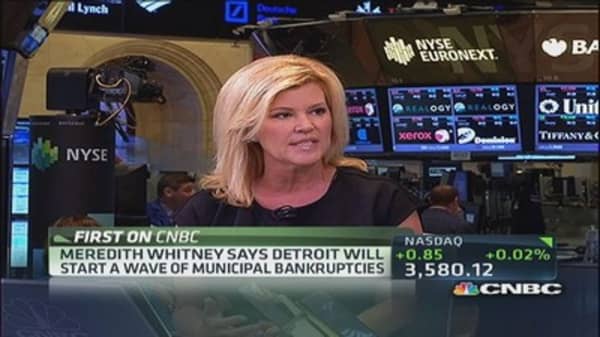Municipal bond funds saw outflows of $1.2 billion in the week ending July 24, on concern that Detroit's filing for bankruptcy - the largest in U.S. history - will set an important precedent and more cities could follow suit. It was the ninth consecutive week of outflows from the fund type.
The move out of municipal bonds or munis began after the U.S Federal Reserve said it could scale back asset purchases later in the year, causing Treasury yields to jump.
"Caught up in the exodus from [Treasurys] and govies and the drama surrounding the nation's largest city filing for bankruptcy (Detroit), municipal debt funds (ex-ETFs) experienced net outflows for the ninth week in a row," Lipper said on Thursday.
(Read More: Detroit not a one-off, aftershocks will be staggering: Whitney)
Detroit bankruptcy followed years of a declining population and its once famous auto manufacturing industry.
As part of Detroit's restructuring plan, Emergency Manager Kevyn Orr wants to treat general obligation (GO) bonds as unsecured debt. If that request is approved by the bankruptcy judge, the $3.7 trillion muni-bond market could be turned on its head, as would the long-held assumption that GO bonds represent a relatively risk-free investment.





